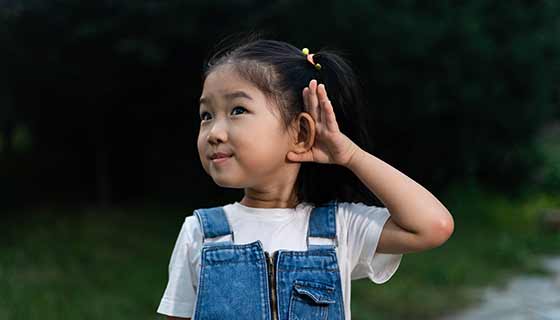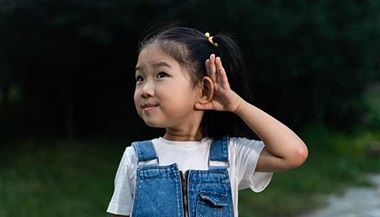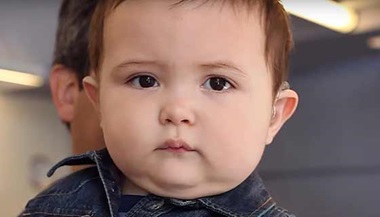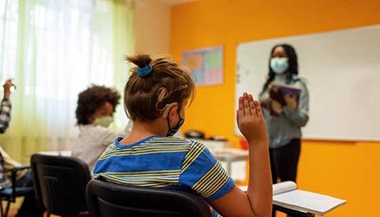Hearing Loss in Children
What is hearing loss?
Hearing loss in children can be present at birth (congenital) or develop later in childhood (acquired). Congenital hearing loss can be hereditary (genetic) or caused by infections during pregnancy, including infection with cytomegalovirus or rubella. Hearing loss is more common in babies who are in the neonatal intensive care unit (NICU). Hearing loss can be an isolated condition or a feature of a syndrome that causes additional symptoms. Genetic testing can help determine the cause of hearing loss in some cases. Acquired hearing loss can be caused by infectious diseases, such as meningitis or recurrent ear infections, as well as trauma and certain medications.
Depending on its cause and origin, the hearing loss can be:
- Sensorineural, a permanent type of hearing loss which occurs when the inner ear (cochlea) or the auditory nerve is damaged or malformed
- Conductive, which occurs when the sound can’t travel through the ear because of earwax build-up, a foreign body lodged somewhere in the ear, build-up of fluid or a punctured eardrum (Conductive hearing losses may be treated in some cases with medicine or surgery.)
Hearing loss is categorized as mild, moderate, severe or profound depending on its severity.
Symptoms
- Reduced hearing, such as inability to hear faint sounds
- Failure to respond to sound
- Delay of language and speech development in young children
- Unclear speech
You Suspect Your Child Is Experiencing Hearing Loss: First Steps
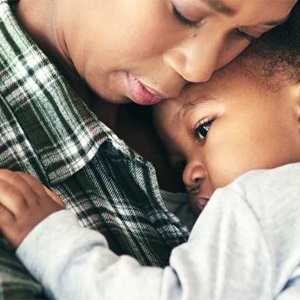
Is your child showing signs of hearing loss? Get an evaluation as soon as possible with a pediatric otolaryngologist (ENT) and audiologist who specializes in treating children. Treatment options for hearing loss will depend on the diagnosis. The most important thing to remember is that your child can still be successful in school and enjoy taking part in sports and other activities.
Diagnosis
A hearing test is the best way to diagnose hearing loss and its severity. More tests may be needed to identify the cause. No child is too young to have a hearing test!
Treatment
- Hearing aids
- Medication
- Surgery
- Cochlear implants
Newborns should be tested for hearing loss and deafness shortly after birth in order to start receiving therapy promptly, since intervention within the first six months can prevent developmental and social problems.
When to Call for Help
If you see any of the symptoms listed above in your child, talk to your pediatrician.
Hearing Loss: Why Choose Johns Hopkins?

Hearing problems don’t discriminate and can affect people at any stage of life. Don’t suffer in silence with hearing loss.
Our center’s physicians are among the finest and most highly skilled otologists and neurotologists (ear, nose and throat doctors) in the world. Their expertise, coupled with the care of licensed and certified audiologists, ensures you get quality care.

